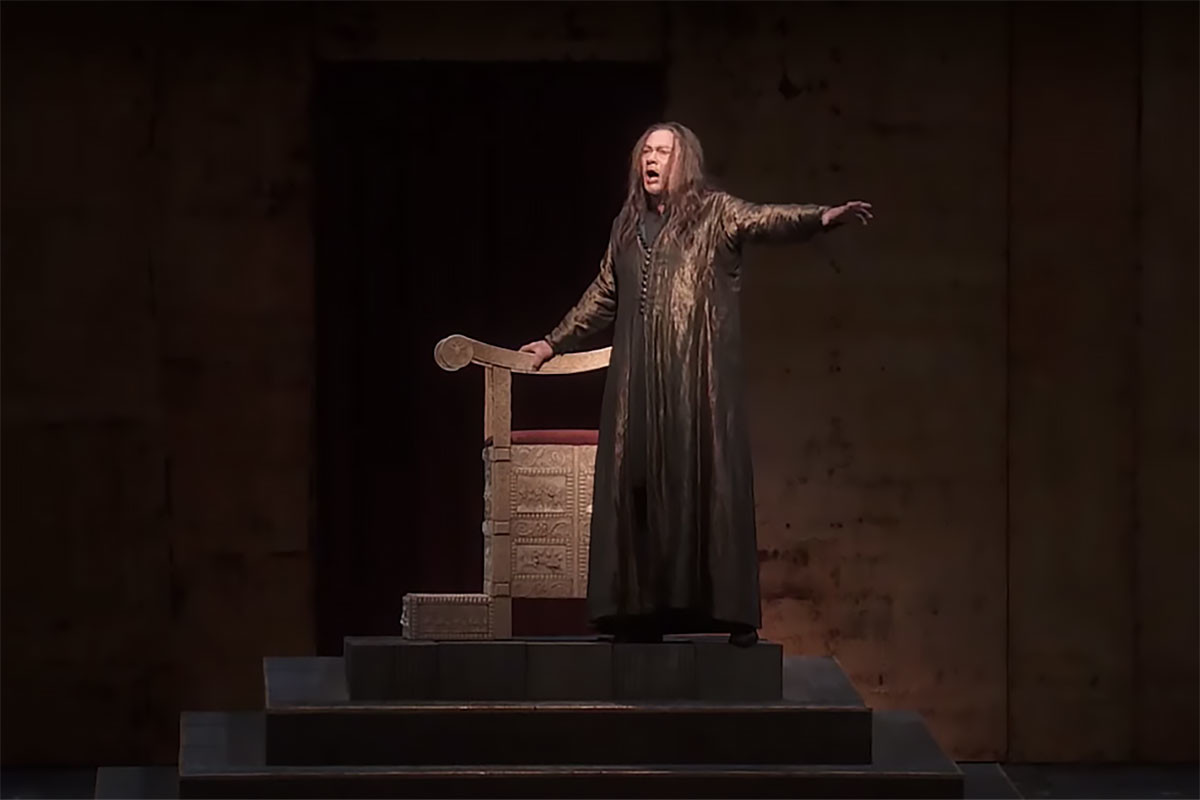10 Russian operas being staged around the world in the new 2021–22 season
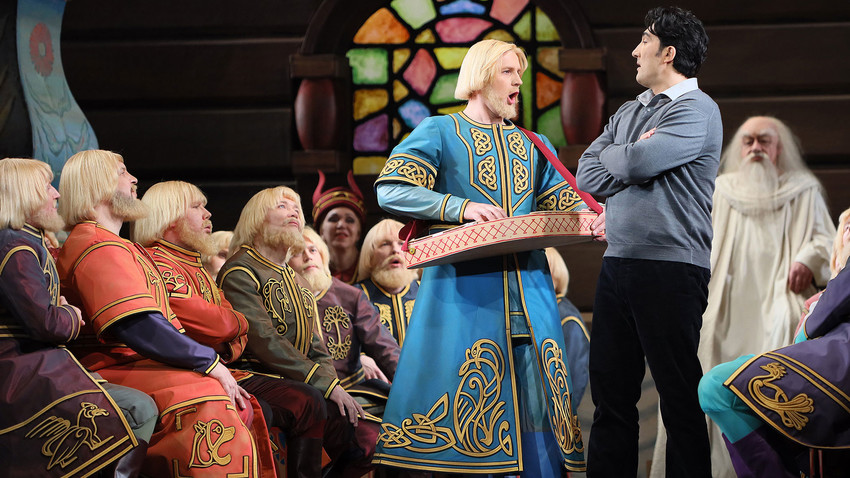
1. ‘Boris Godunov’ at the Metropolitan Opera (New York City, United States)
In terms of the depth and subtlety of psychological analysis, Modest Mussorgsky could definitely rival Fyodor Dostoevsky or Leo Tolstoy.
In ‘Boris Godunov’, he proved himself not only as a great composer and librettist, but also as a visionary far ahead of his time. Mussorgsky broke new ground in that he actually chose to highlight the dramatic conflict between the tsar and the people in this historical operatic blockbuster. The Russian composer went as far as to actually give the people the lead role in ‘Boris Godunov’.
The Metropolitan Opera aptly describes Mussorgsky’s masterpiece as “a pillar of the Russian repertoire”, noting that the performance has been staged in its original 1869 version. Stephen Wadsworth’s production, with German bass René Pape as the title character in Mussorgsky’s ‘Boris Godunov’, depicts the “hope and suffering of the Russian people as well as the tsar himself”.
2. ‘The Queen of Spades’ at La Scala (Milan, Italy)
Pyotr Tchaikovsky’s grim tale of passion and greed is widely considered the pinnacle of his artistic achievement. With the libretto composed by Tchaikovsky’s brother, Modest, the masterwork is based on Alexander Pushkin’s mystical short story, ‘The Queen of Spades’.
It has it all: passion, obsession, fear and fire.
The opera is set in 18th century St. Petersburg and revolves around an unfortunate young man named Herman, who is obsessed with gambling. Herman also seems to be in love with the charming Lisa, whose grandmother, an old Countess, knows the secret of the “three winning cards”. Herman takes his obsession with gambling too far and things quickly go off the rails.
Staged by Matthias Hartmann, ‘The Queen of Spades’ stars mesmerizing Russian mezzo-soprano Olga Borodina as the Countess and Russian tenor Najmiddin Mavlyanov as Herman.
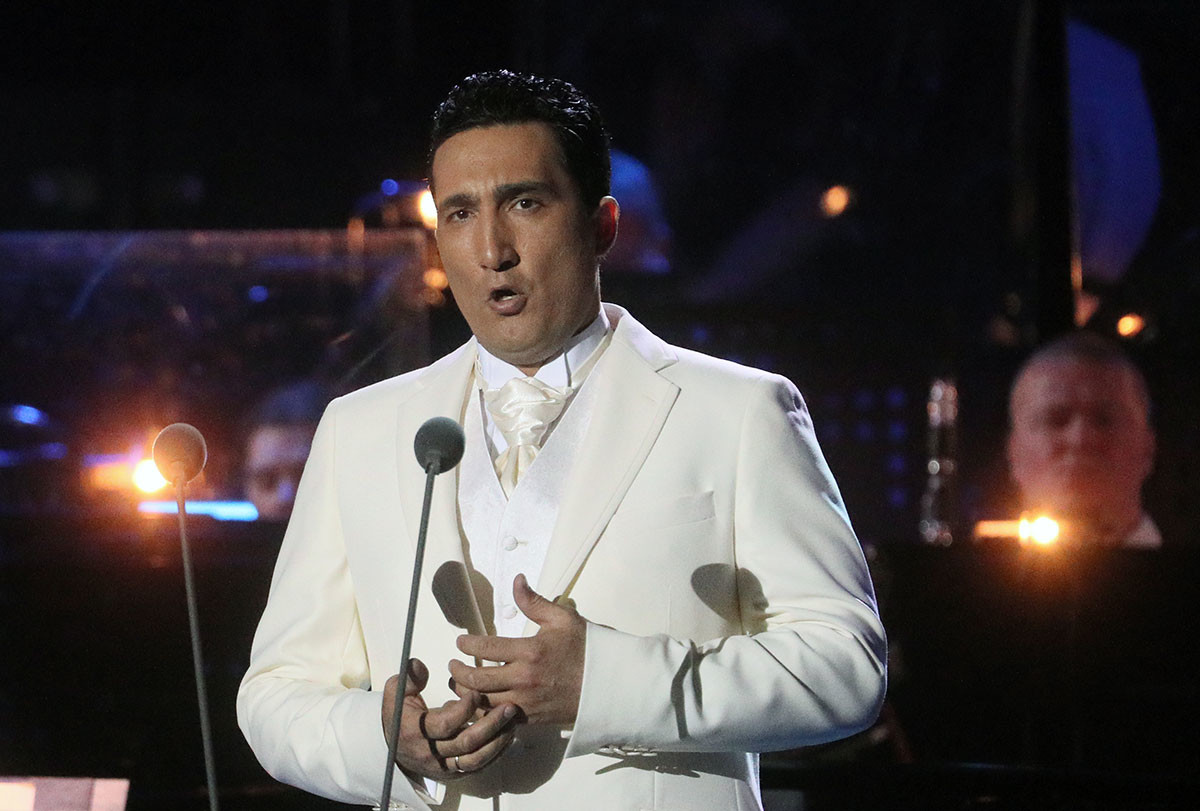
Russian tenor Najmiddin Mavlyanov
Аleksandr Scherbak/TASSIn the new season, Tchaikovsky’s grandest opera will be conducted by Maestro Valery Gergiev.
READ MORE: Top 10 GREATEST Russian orchestra conductors
3. ‘Sadko’ at the Bolshoi Theater (Moscow, Russia)
‘Sadko’ is, by far and large, Russia’s musical answer to Homer’s ‘Odysseus’. All modesty aside, Nikolai Rimsky-Korsakov gave his work quite an unusual genre definition - an epic opera.
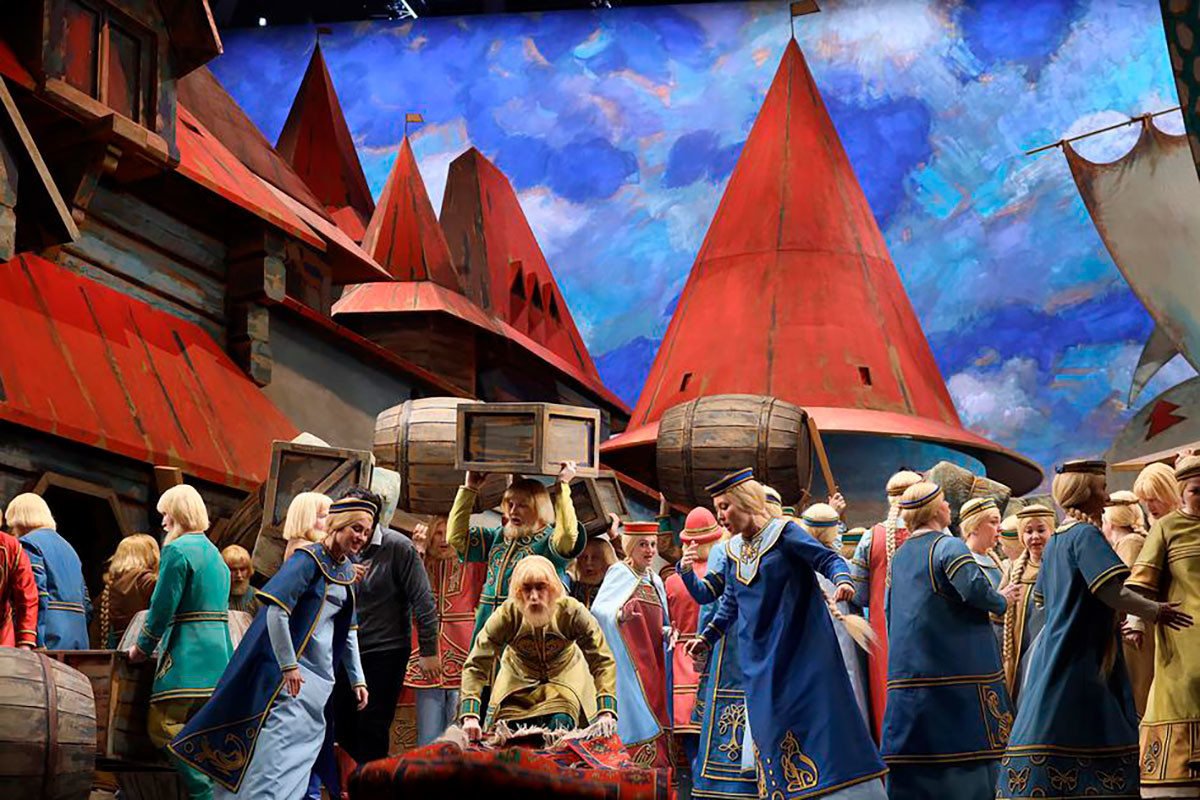
'Sadko' at the Bolshoi Theater
Damir Yusupov/The Bolshoi TheaterIndeed, the prolific composer created a musical score of epic proportions, which requires an exceptional cast of performers and a nontrivial solution to setting the blockbuster opera. In ‘Sadko’, dramatic mass scenes alternate with heartfelt lyrical episodes, characterized by the exquisite beauty of the melodies. The opera focuses on Sadko, a young musician who dreams about incredible adventures and overseas travel. Sadko decries wealthy merchants for boasting and bluster, but the wandering artist will have to put his words into action after the fateful with the Tsar of the Sea. Charismatic tenor Najmiddin Mavlyanov, who has performed at the Royal Opera and the Metropolitan Opera, nails it as Sadko in the trailblazing production staged by Dmitri Tcherniakov.
4. ‘Eugene Onegin’ at the Vienna State Opera (Vienna, Austria)
Tchaikovsky was a true original, who never followed the crowd. So, instead of a story boasting “tsars, tsarinas, uprisings, battles and marches”. Tchaikovsky said he needed an intimate human drama with universal appeal. With the inner world of the characters in mind, Tchaikovsky created his signature “lyrical scenes in three acts”, featuring an ideal combination of pathos, drama and dignity.
‘Eugene Onegin’, based on Pushkin’s famous novel in verse, focuses on a young and sentimental woman, Tatiana Larina, who naively declares her love to a self-centered man. Eugene Onegin, who is cold as a fish, rejects Tatiana’s love and continues to live his life to the full. When he realizes that he might have missed the love of his life, it’s already too late.
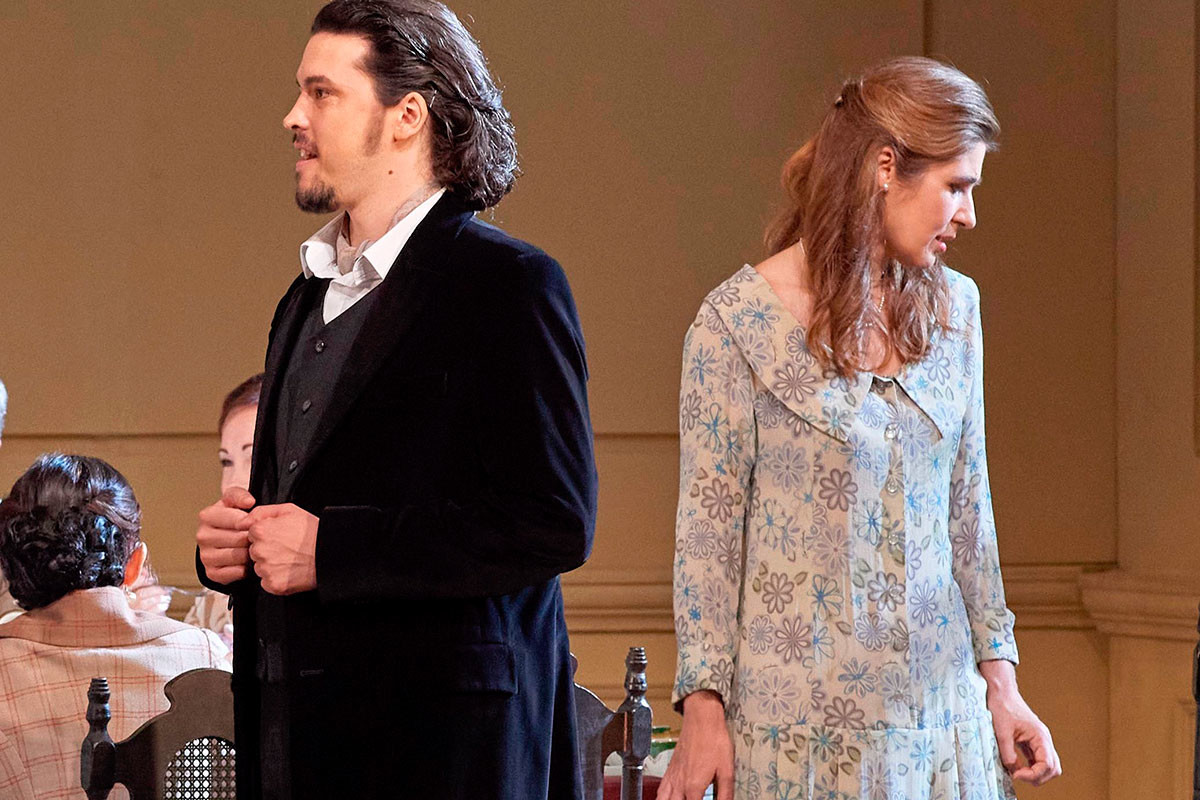
Andre Schuen as Onegin and Nicole Car as Tatyana.
Wiener Staatsoper/Michael PoehnCutting-edge director and set designer Dmitri Tcherniakov creates an atmosphere of dramatic movement at the Vienna State Opera, with baritone Andre Schuen’s Onegin and Nicole Car’s Tatyana sharing charisma on stage.
5. ‘The Nose’ at the Royal Danish Opera (Copenhagen, Denmark)
Dmitri Shostakovich wrote his first opera when he was just 22. It’s youthful, full of irony and delight. The comical opera is based on Nikolai Gogol’s short satirical story of a nose that runs away from its owner. What else is there to say? Oops. It’s hysterical and ridiculous indeed. Shostakovich's ‘Nose’ (the composer wrote the libretto himself) can be safely called a phantasmagorical tongue-in-cheek opera, because the absurdity of Gogol's plot and setting is multiplied a hundred times by the theatrical and musical language used by the genius composer.
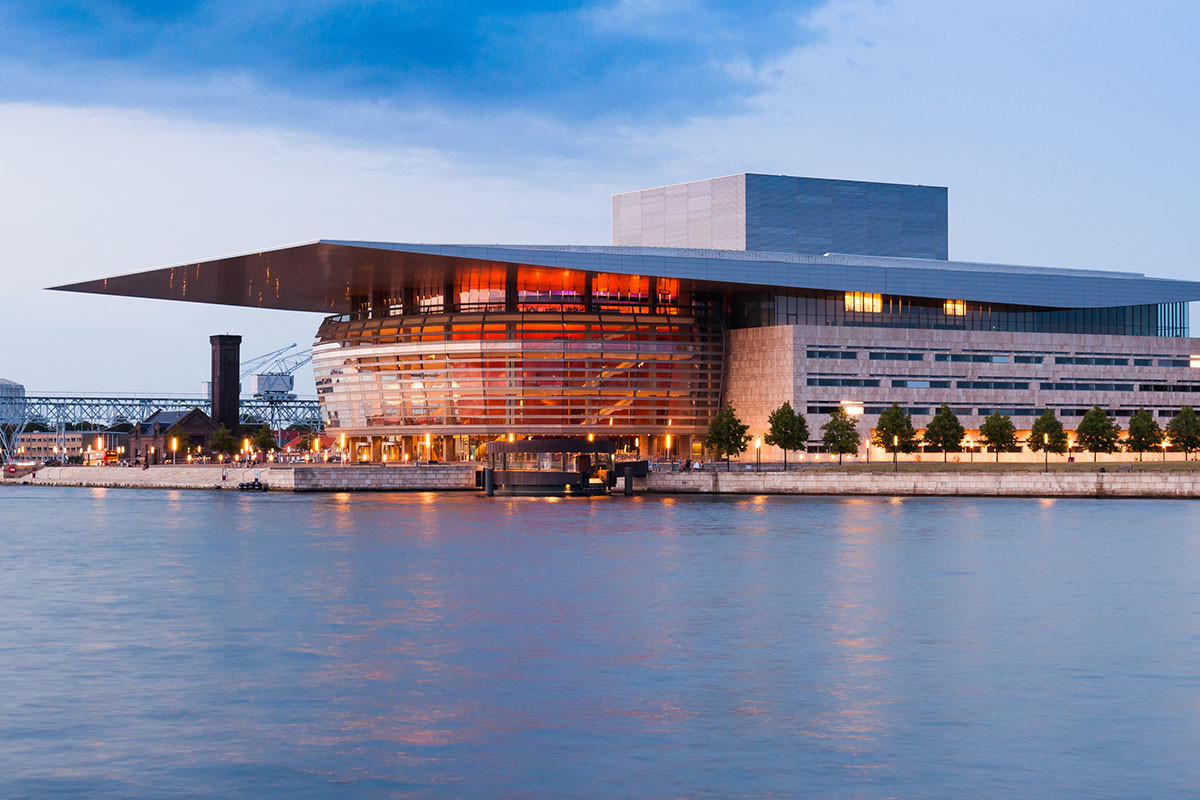
The Copenhagen Opera House (Operaen) in Copenhagen Holmen, Denmark
Julian Herzog (CC BY 4.0)‘The Nose’, staged by Barcelona-born director Alex Ollé at the Royal Danish Opera, is not to be missed.
6. ‘Khovanshchina’ at Opéra Bastille (Paris, France)
Modest Mussorgsky decided to devote this epic opera to one of the most turbulent periods in Russian history.
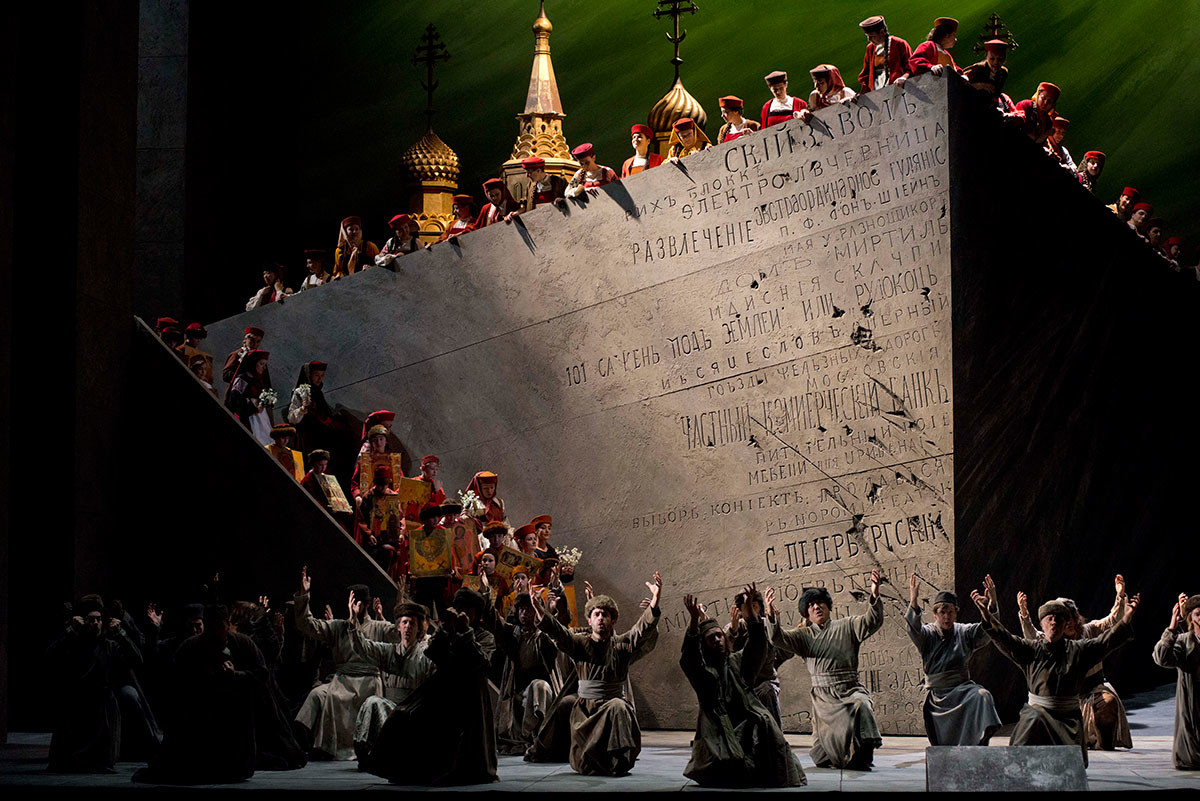
‘Khovanshchina’ at Opéra Bastille
Ian Patrick/OnPThe so-called Streltsy Uprising of 1682 (the year in which Peter the Great was crowned tsar after the death of the childless Tsar Fyodor Alekseevich, bypassing his half-brother Ivan) inspired Mussorgsky to write his opera. The painstaking work on ‘Khovanshchina’ lasted for nearly ten years and yet, Mussorgsky left the score unfinished. The composer died before managing to complete his magnum opus. Luckily, his work ended up in the good hands of such luminaries as Rimsky-Korsakov, Shostakovich and Stravinsky, who completed ‘Khovanshchina’. And while Mussorgsky’s opera is probably as complicated as the palace intrigues that it tackles, one thing is certain: Mussorgsky (still) has no rivals when it comes to creating virtuoso psychological tension and mystery. Internationally acclaimed Russian bass Dimitry Ivashchenko, whose deep and resonant voice reflects every aspect of human nature, will take the role of Prince Ivan Khovanski, while tenor Sergei Skorokhodov will make his Paris Opera debut as Prince Andrei Khovanski. Georgian operatic mezzo-soprano Anita Rachvelishvili (who became the youngest singer ever to open a season at La Scala in 2009) will show off the strength and velvenitess of her voice as Marfa.
Real opera buffs will also choose ‘Khovanshchina’ at Opéra Bastille to hear legendary conductor Hartmut Haenchen, who received training from Pierre Boulez, Herbert von Karajan and Yevgeny Mravinsky.
7. ‘Ruslan and Lyudmila’ at the Mariinsky Theater (St. Petersburg, Russia)
It took Mikhail Glinka, often referred to as the father of Russian opera, five long years to create his operatic fairy-tale. As one might guess from the title, ‘Ruslan and Lyudmila’ is based on Alexander Pushkin’s eponymous poem. Glinka made some changes in the details of the plot for his opera in five acts.
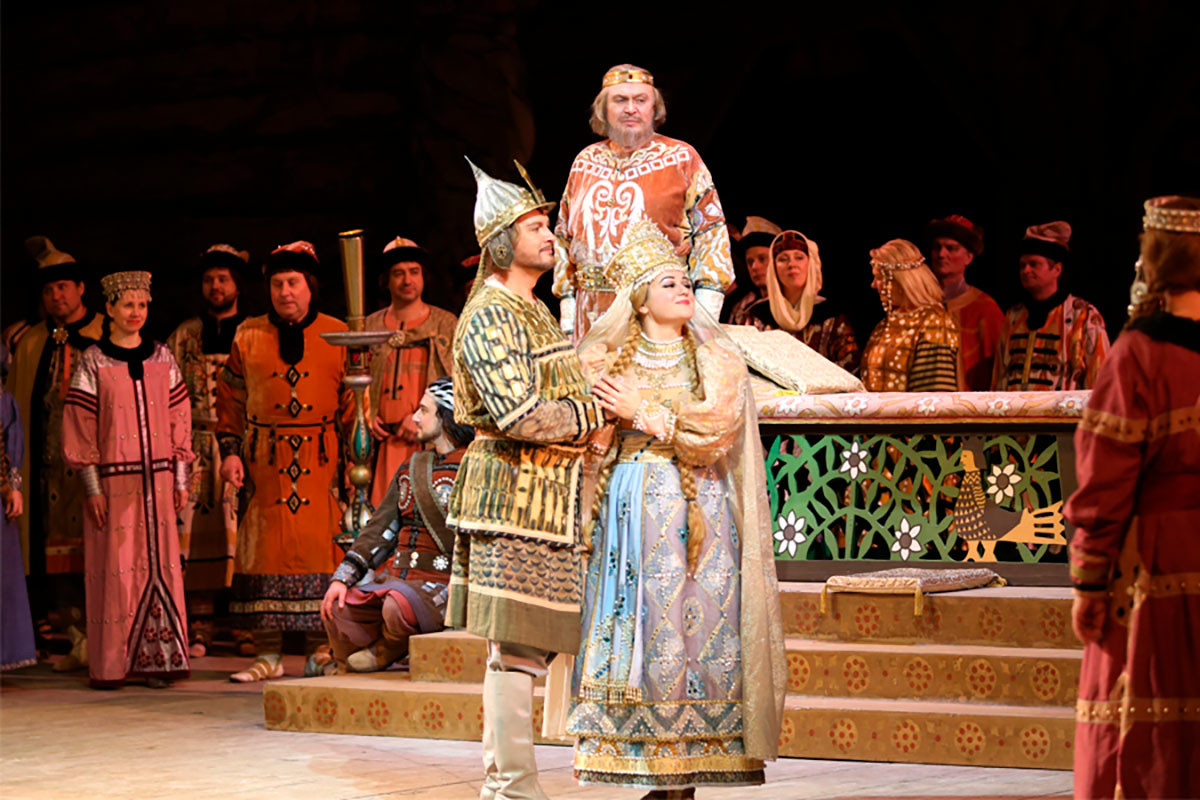
On her wedding day with Ruslan, Lyudmila disappears (she’s not a runaway bride, though, that’s a different story altogether.) Tsar Svetozar promises half a kingdom to the man who will rescue and return his beloved daughter.
Loyalty and love go hand in hand in this magnificent opera, which condemns cowardice and cheating. In ‘Ruslan and Lyudmila’ Glinka plays masterfully with light and darkness, comedy and drama, eastern and western music themes. The colorful characters show the diversity of life in all its glory.
Powerful bass-baritone Yevgeny Nikitin and soulful soprano Aigul Khismatullina shine like sparklers as Ruslan and Lyudmila at the Mariinsky.
READ MORE: 7 facts about the Mariinsky Theater in St. Petersburg
8. ‘Iolanta’ at Royal Swedish Opera (Stockholm, Sweden)
Iolanta is a beautiful, but blind girl and doesn’t even know about her condition. She lives in a castle with her loving father, King René, who forbade his subjects to talk about his daughter’s visual impairment. But when Iolanta falls in love, things will change.
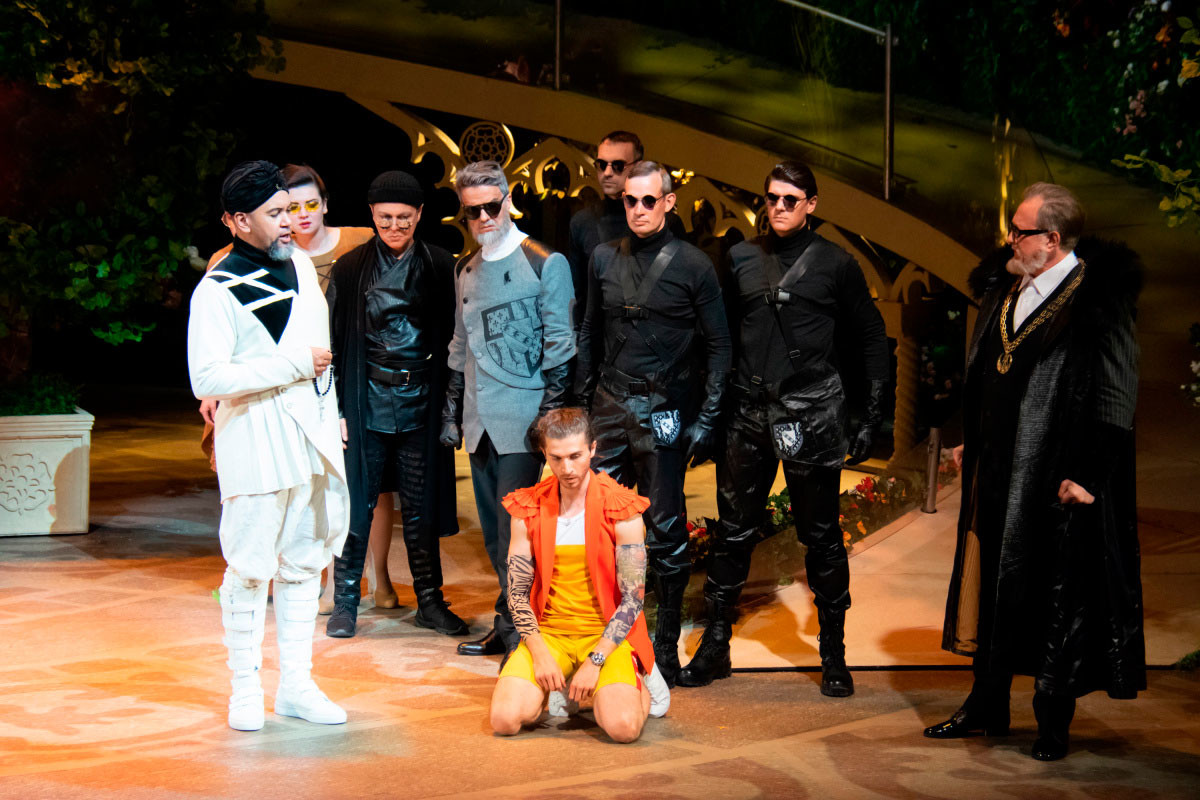
“I’ll write an opera that will make everyone cry,” Tchaikovsky decided while working on this opera. No sooner said than done.
‘Iolanta’ is a hymn to the all-conquering power of love and is one of the most poetic and sublime operas by Tchaikovsky. Created with poetic sensibility and lyricism, it’s suffused with an atmosphere of light and kindness, which is rare for the opera genre. It contains a whole selection of beautiful melodies, arias and ensembles known to every classical music lover. ‘Iolanta’ was first performed at the Royal Swedish Opera back in 1893. It’s comeback time again for Tchaikovsky’s last opera. Russian soprano Olga Shcheglova portrays the lead role of Iolanta while René is embodied by bass Stanislav Shvets, who made his debut with the Ireland Opera in Verdi’s ‘Macbeth’.
9. ‘Prince Igor’ at the Perm Opera House (Perm, Russia)
One of the mainstays of the classic Russian repertoire, Alexander Borodin’s ‘Prince Igor’ is based on the ‘Song of Igor’s Campaign’, the greatest monument of Old Russian literature.
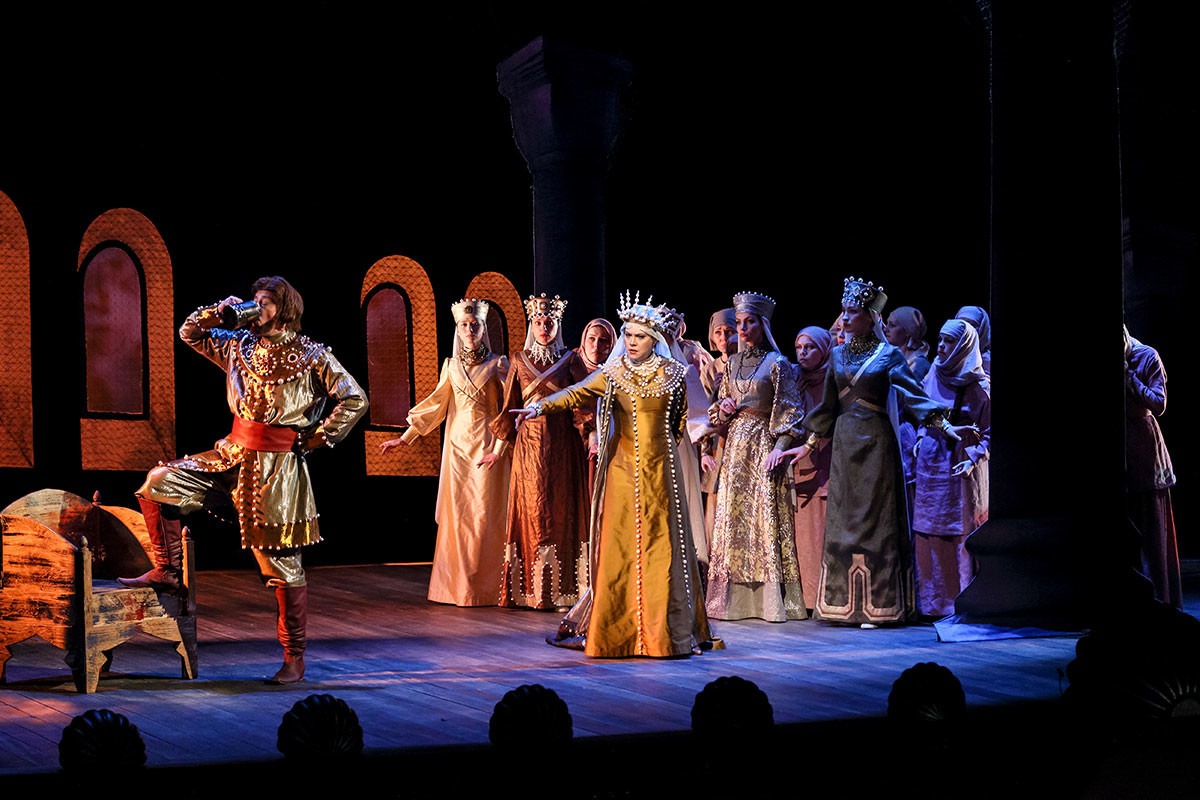
Written in the 12th Century, it focuses on Prince Igor’s doomed campaign against the Polovtsy in 1185. Ignoring the unfortunate signs of things to come, such as a solar eclipse, Igor leads his troops against the entire might of the Polovtsian steppe. His army is defeated, Igor is wounded and taken prisoner along with his family members. Despite odds stacked against him, the prince eventually manages to escape with the help of the magical forces of nature. Belgian stage director and choreographer Sigrid T’Hooft, who is a real expert in the field of historical theater reconstruction, made sure that ‘Prince Igor’ doesn’t lose his appeal.
10. ‘The Fiery Angel’ at Teatro Real (Madrid, Spain)
Surreal, dark and provocative, ‘The Fiery Angel’ was never performed in Sergei Prokofiev’s lifetime. The composer’s most mystical work is based on a novel by symbolist Russian poet Valery Bryusov. ‘The Fiery Angel’ revolves around a young girl who is haunted by spirits. Renata calls one of them Madiel and dreams to be his lover, but he is not the only man in her desperate life, full of illusions.
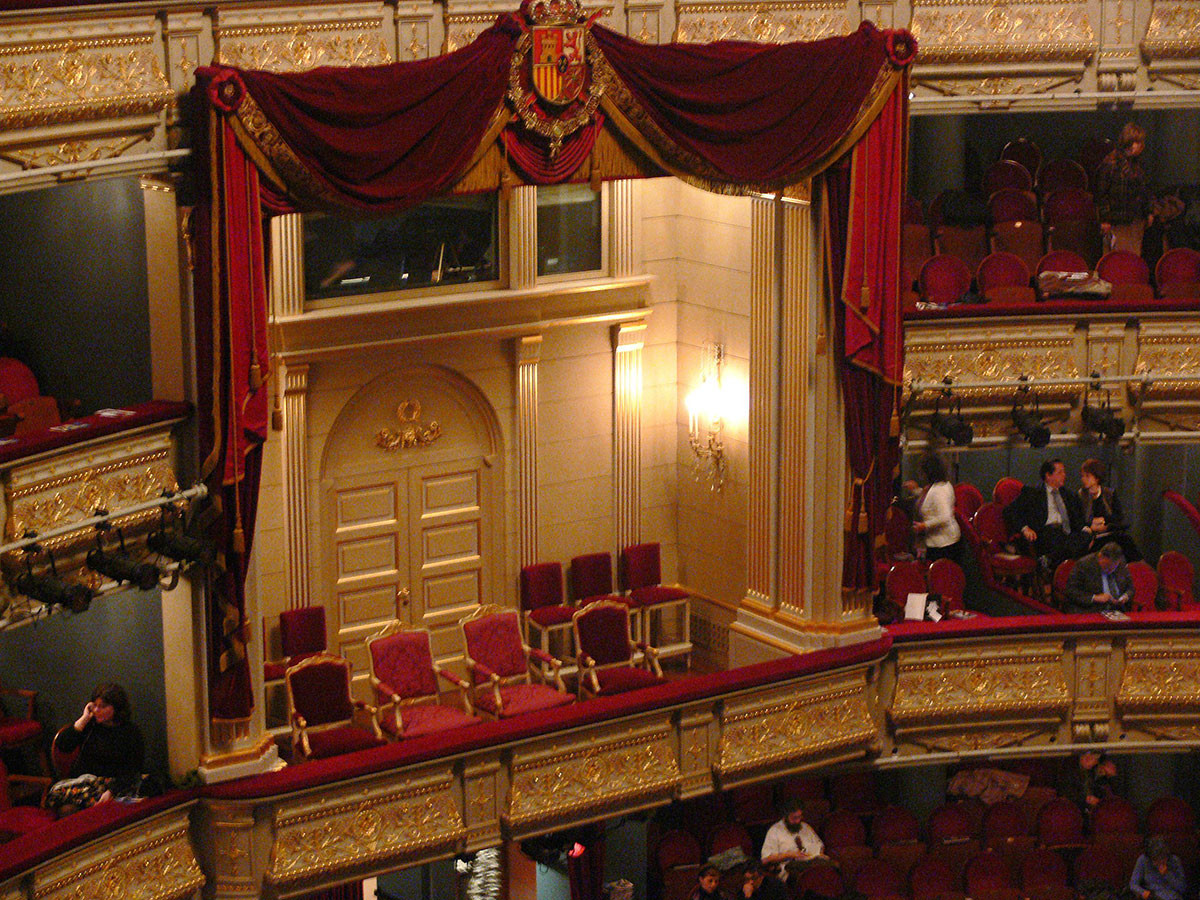
Prokofiev’s disturbing ‘Angel’ is staged in the Teatro Real in collaboration with the Opernhaus of Zurich by the award-winning Spanish theater director Calixto Bieito, known for his unorthodox interpretations of classic operas.
READ MORE: Who was Sergei Prokofiev, one of the world's most popular composers?
If using any of Russia Beyond's content, partly or in full, always provide an active hyperlink to the original material.
Subscribe
to our newsletter!
Get the week's best stories straight to your inbox
